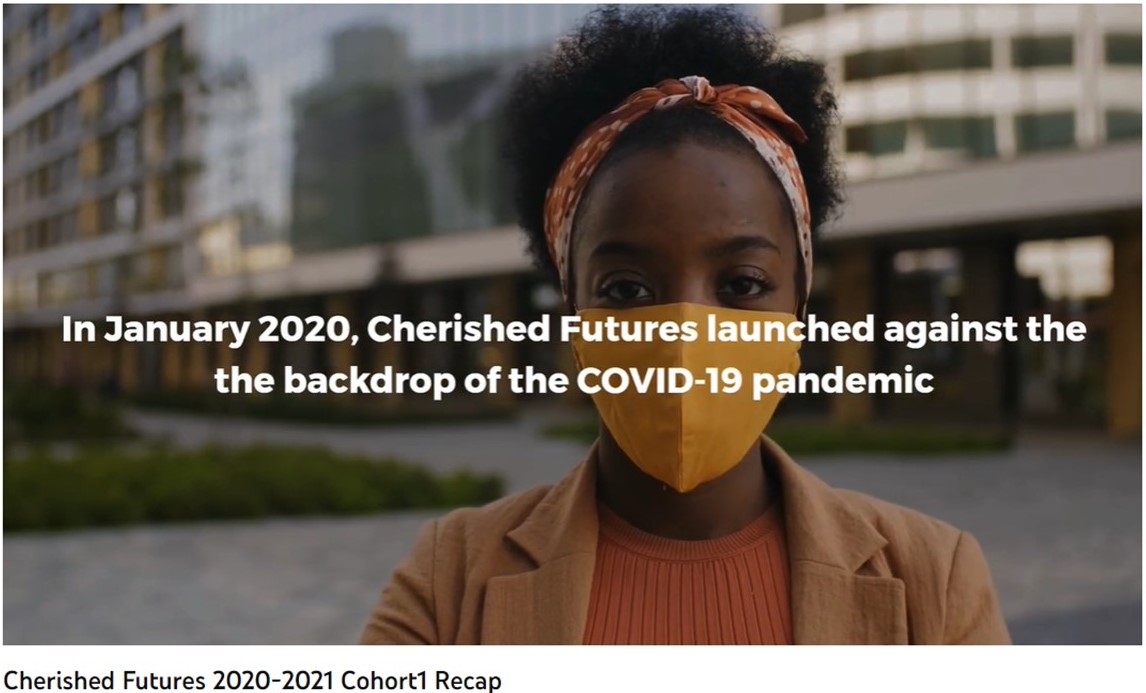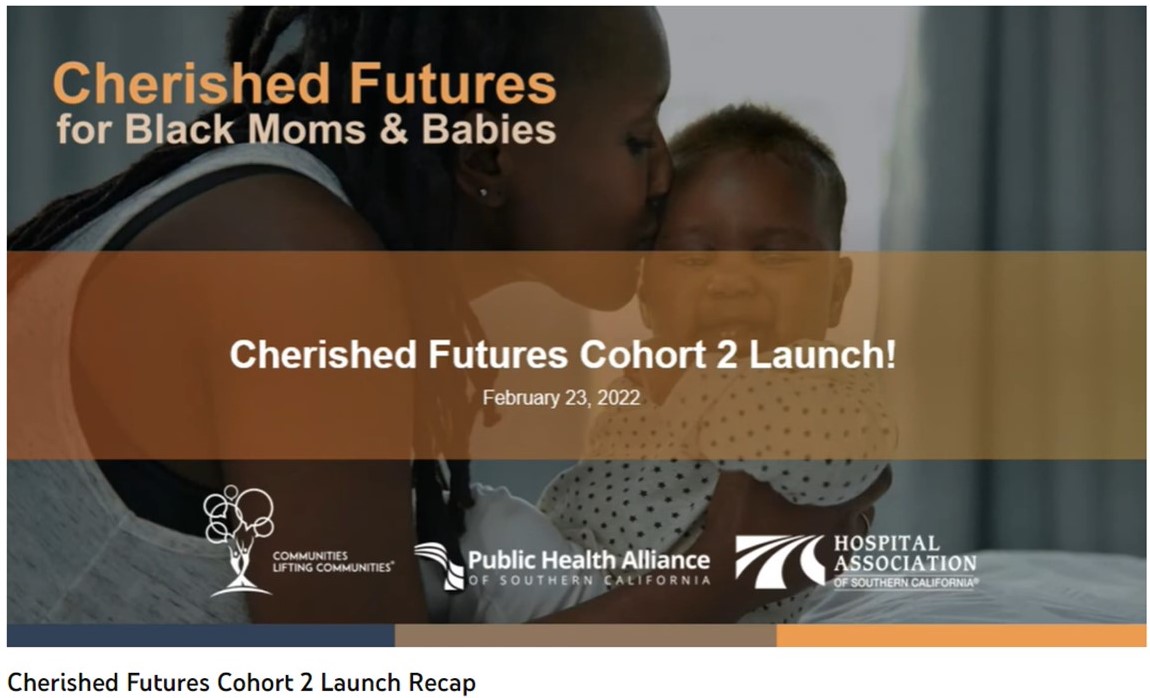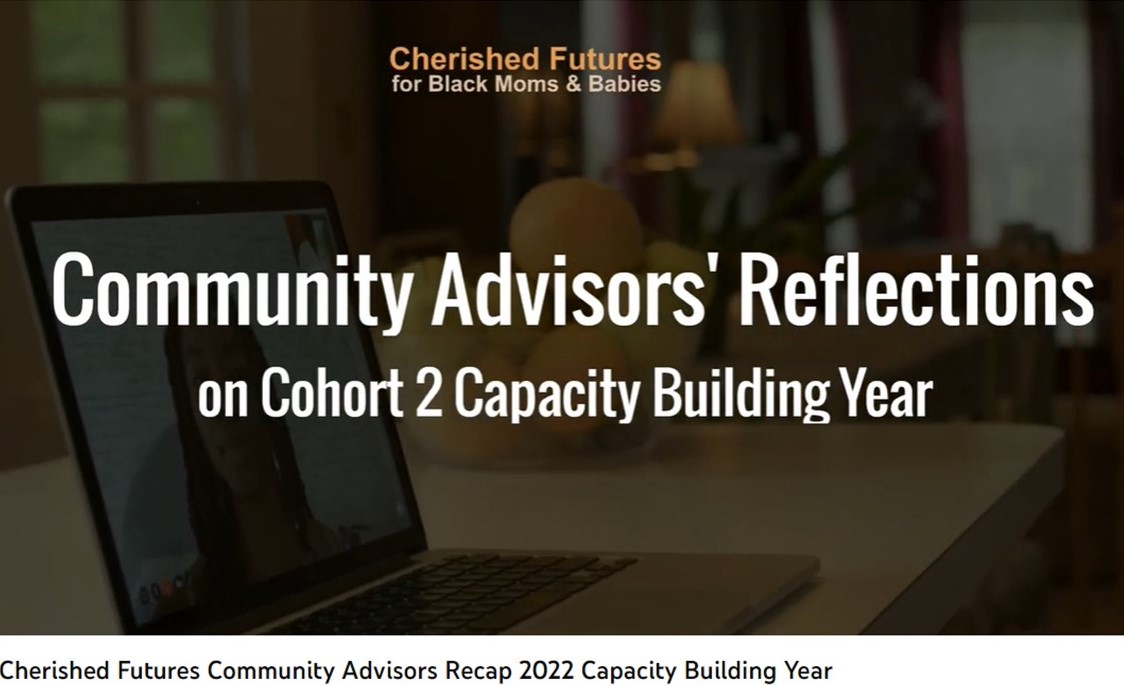‘Cherished Futures’ Advances Health, Racial Equity for Black Women, Babies and Birthing People in Los Angeles County
Highlights

PHI’s Cherished Futures program is centering the voices and lived experiences of Black women and birthing people in Los Angeles County to reduce health and racial inequities and drive change through hospital transformation teams and other collaborative partners.
45% of hospital births are delivered by members who have participated in cohort 1 and 2 of the Cherished Futures initiative
-
Focus Areas
Health Care & Population Health, Women, Youth & Children -
Issues
Reproductive & Sexual Health -
Expertise
Coalition & Network Building
The Public Health Institute’s Cherished Futures for Black Moms and Babies program was created during the onset of the COVID-19 pandemic in 2020, at a time where there were worldwide rallies for racial justice, and a push for racism to be recognized as a public health crisis. Racism has contributed to a disproportionate number of COVID-19 illness and deaths affecting Black, Latinx and other communities of color. Racism and toxic stress are also the root causes for disparities in birth outcomes for Black women, babies, and birthing people.
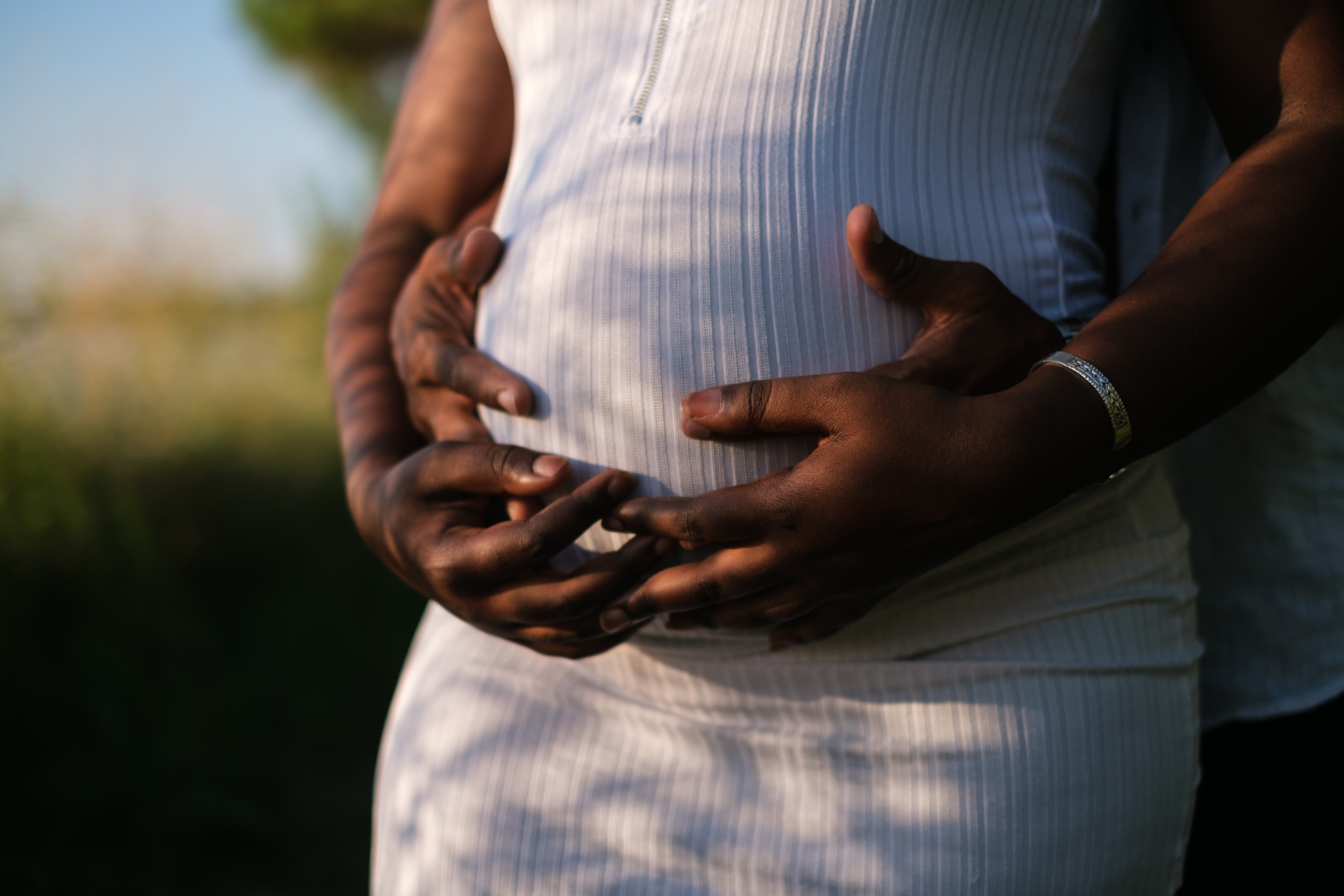
Cherished Futures was featured in a thought leadership video series at the 2022 American Public Health Association (APHA) conference. Learn more about their work by watching this video.
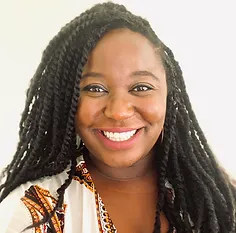
So, we know structural racism over generations has perpetuated you know racial segregation and that has pushed ultimately Black and Brown people into under-resourced, over-policed, environmentally toxic neighborhoods. So, even when you know Black folks have higher income levels, there’s still a significant exposure to racism and a level of hyper vigilance to protect ourselves and to protect our loved ones.Dana Sherrod, MPH
Director, Birth Equity and Racial Justice Initiatives, Public Health Alliance of Southern California | Cherished Futures
Cherished Futures utilizes a cross-sector and collaborative approach to help reduce Black infant deaths and improve patient experience and safety for Black mothers and birthing people in Los Angeles County by driving systems change. They bring together the following partners from the Los Angeles County area: decision-makers from local hospitals, public health departments, health plans, and Black women community leaders. Together, the collaborative partners identify and put into action systems-change solutions at a clinical, institutional, and community level.
Advancing health, racial equity in hospitals
Cherished Futures is a two-year program, offering a cohort experience that focuses on institutional accountability and redefining the narrative about Black birthing families in Los Angeles. The Cherished Futures model centers the voices and lived experiences of Black women and birthing people to reduce health and racial inequities and drives primary change through hospital transformation teams and other collaborative partners.
It has been a deep honor to create the second cohort of multisector partners that are committed to this work, with specific, intentional centering of Black families.Dana Sherrod, MPH
Director, Birth Equity and Racial Justice Initiatives, Public Health Alliance of Southern California | Cherished Futures
Cherished Futures is already seeing a difference. In Dec. of 2021, Cherished Futures completed its first cohort and in 2023, Cohort 2 is transitioning to their second year, and focusing on implementing the individual systems-change strategies developed in the first year of the cohort. Collectively, the members of Cohorts 1 and 2 deliver nearly half (about 45%) of Black hospital births in Los Angeles County.
In addition to participants’ involvement in the cohorts, Cherished Futures released two reports that serve as a roadmap and foundation for the initiative. The first report, Advancing Birth Equity in Los Angeles County, highlights findings from interviews with six local clinics to take a closer look at practices and identify challenges to advancing birth equity for Black families. The report highlights multiple short-term recommendations such as the need for developing culturally congruent educational tools for patients and their families, including information about pregnancy, birth, and the postpartum period and long-term recommendations such as the need to improve neighborhood conditions to reduce the stress on Black families.
The second report, Engaging Community Members and Key Stakeholders in the Development of a Birth Equity Hospital Designation, details results from a comparative analysis of hospital evaluation systems and highlights key themes from interviews and focus groups with experts in creating a birth equity designation for California hospitals. The findings point to a need for stronger, intentional, nonhierarchical partnerships between hospitals and the communities they serve.
One vital lesson learned this year from our Birth Equity Team and nurses, in particular, is that we understand it is not enough to say, ‘I treat all my patients the same.’ Everyone has different needs and respectful maternal care must provide individualized care. So, when we encounter a Black mother, we have to check our biases and judgments at the door and enter in with our hearts, which brings in the openness to hear her.Rev. Dr. Candace Kelly
Staff Chaplain and Team Member with Miller Children’s & Women’s Hospital
Cherished Futures is a joint initiative of PHI’s Public Health Alliance of Southern California, Communities Lifting Communities and the Hospital Association of Southern California.
To learn more about Cherished Futures, please visit www.cherishedfutures.org.
Work With Us
You change the world. We do the rest. Explore fiscal sponsorship at PHI.
Support Us
Together, we can accelerate our response to public health’s most critical issues.
Find Employment
Begin your career at the Public Health Institute.
